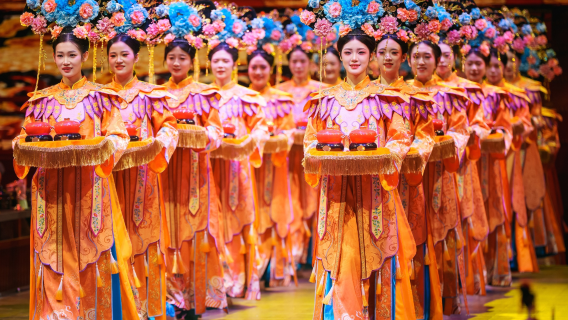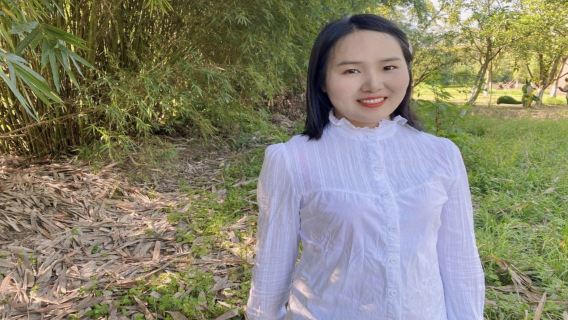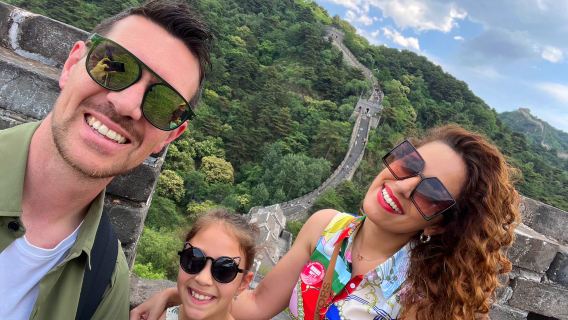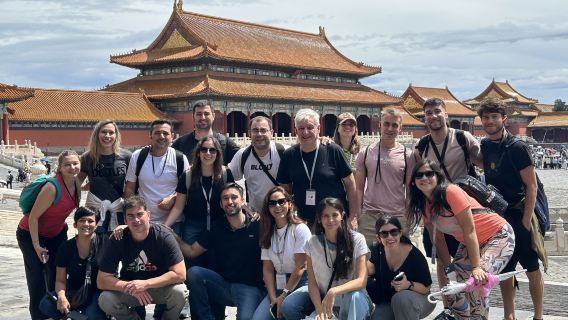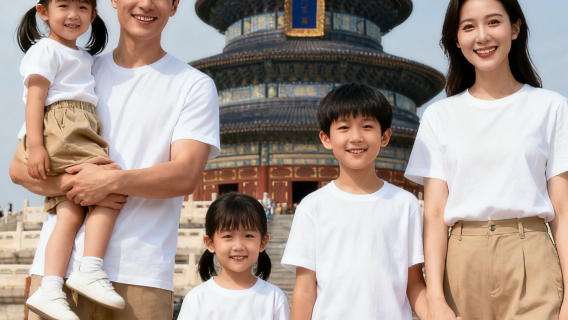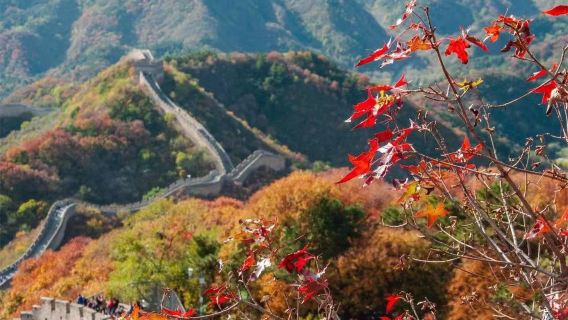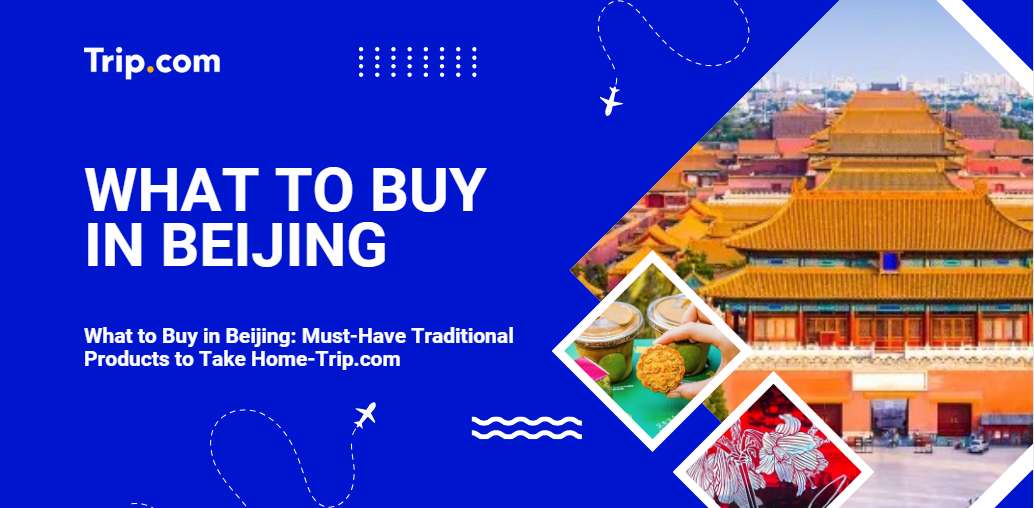
Wah, if you're anything like me — always hunting for the best deals — then Beijing is truly a shopper's paradise. My first thought? So many options, you won't know where to start! From the upscale malls like China World Mall packed with luxury brands, to hip spots like Nanluoguxiang for those one-of-a-kind local designer pieces, the choices are seriously impressive.
Compared to Jakarta, shopping in Beijing feels like an adventure — almost like you're on a treasure hunt, you know? Plus, with the exchange rate, some items seem way more budget-friendly. Whether you're into high-end fashion or quirky local crafts, shopping here can easily turn into a full-day affair (or maybe even two ).
Wondering what to buy in Beijing? Let's jump into the best buys this city has to offer!
Recommended eSIM Options for Traveling to China!
3 day - 3GB/day
- Data3GB/day
- Validity3 day
- Pricefrom Rp 64.556
5 day - 20GB
- Data20GB
- Validity5 day
- Pricefrom Rp 136.035
7 day - 20GB
- Data20GB
- Validity7 day
- Pricefrom Rp 147.439
🛍️ What to Buy in Beijing
1. Chinese Knots
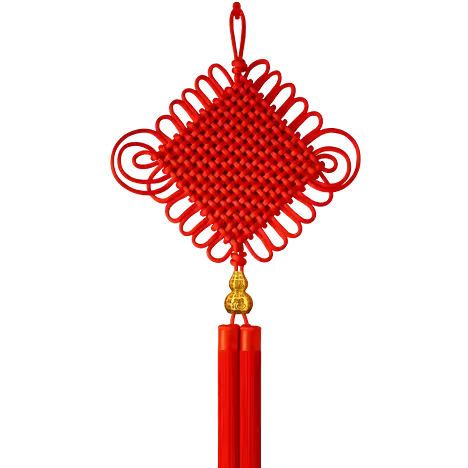
As soon as I picked up the Chinese knot, its vibrant colors and intricate design fascinated me. The vendor, a friendly craftsman, eagerly explained how each knot is carefully tied, representing good fortune and unity. Holding it, I felt as though I was carrying a piece of Beijing's rich tradition and culture.
📖 About Chinese Knots
Chinese knots are a popular souvenir from Beijing, known for their symbolic meanings and artistic designs. Traditionally used as decorations or gifts, they are believed to bring luck and prosperity. Each knot is created from a single cord, showcasing the skill and patience of the artisan.
📍 Where to buy
Panjiayuan Antique Market or Wangfujing Street
💰 Cost
Around Rp 50,000–Rp 150,000
📦 Packaging info
Usually packaged in a decorative pouch or box, perfect for gifting.
💡 Pro Tips
Look for knots with tight, even patterns and bright colors to ensure quality. Feel free to ask the vendor about the meaning behind different designs, and remember, bargaining is common and welcomed!
2. Beijing Paper Cuttings
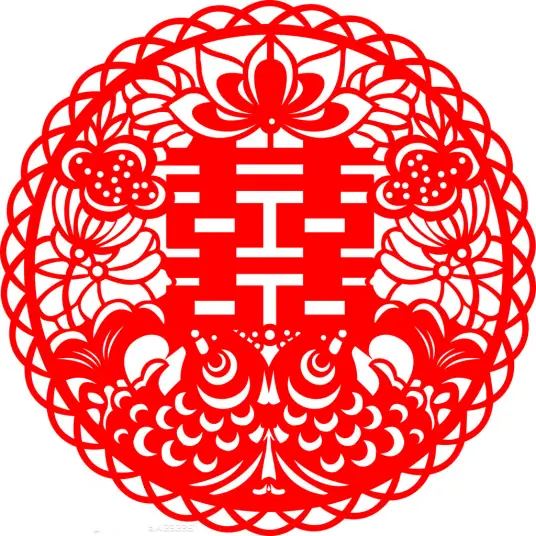
The moment I saw the delicate patterns of the paper cuttings, I was captivated. The vendor, an experienced artist, explained how each piece is meticulously crafted with precision. As I held a paper cutting, I appreciated it not just as an art piece, but as a reflection of Beijing's artistic heritage.
📖 About Beijing Paper Cuttings
Beijing paper cuttings are a treasured form of folk art, known for their intricate designs and cultural significance. Often depicting themes of prosperity and happiness, these cuttings are used for decoration and celebration, especially during festivals.
📍 Where to buy
Nanluoguxiang or Liulichang Cultural Street
💰 Cost
Around Rp 70,000–Rp 200,000
📦 Packaging info
Typically comes in a protective envelope or frame, ideal for preserving the delicate art.
💡 Pro Tips
Choose cuttings with fine details and smooth edges to ensure high quality. Engage with the artist to learn about the stories behind different designs, and don’t hesitate to negotiate the price if you’re buying multiple pieces.
flight tickets from Jakarta to China
- Satu Arah
- Pulang-Pergi
- direct cheapest
 CGK01:457h 10mLangsungPEK09:55Jakarta - Beijing|Sel, 6 Jan|Air China (CA)MXN$4.655MXN$5.17210% OFF10% OFFMXN$5.172MXN$4.655
CGK01:457h 10mLangsungPEK09:55Jakarta - Beijing|Sel, 6 Jan|Air China (CA)MXN$4.655MXN$5.17210% OFF10% OFFMXN$5.172MXN$4.655  CGK01:457h 10mLangsungPEK09:55Jakarta - Beijing|Min, 11 Jan|Air China (CA)MXN$4.655MXN$5.17210% OFF10% OFFMXN$5.172MXN$4.655
CGK01:457h 10mLangsungPEK09:55Jakarta - Beijing|Min, 11 Jan|Air China (CA)MXN$4.655MXN$5.17210% OFF10% OFFMXN$5.172MXN$4.655 CGK05:1019h 5m1 stopPKX01:15Jakarta - Beijing|Sel, 10 Mar|Airasia IndonesiaMXN$2.422MXN$5.17253% OFF53% OFFMXN$5.172MXN$2.422
CGK05:1019h 5m1 stopPKX01:15Jakarta - Beijing|Sel, 10 Mar|Airasia IndonesiaMXN$2.422MXN$5.17253% OFF53% OFFMXN$5.172MXN$2.422 JKT1:00 PM3h 5mLangsungBJS2:00 PMJakarta - Beijing|Thu, Dec 18|Air China (CA)Temukan Penerbangan LainnyaTemukan Penerbangan Lainnya
JKT1:00 PM3h 5mLangsungBJS2:00 PMJakarta - Beijing|Thu, Dec 18|Air China (CA)Temukan Penerbangan LainnyaTemukan Penerbangan Lainnya
Harga penerbangan yang ditampilkan dari ${{departCityName}} ke ${{arrivalCityName}} didasarkan pada rata-rata harga berbagai maskapai untuk 3 bulan ke depan, menurut basis data terbaru Trip.com.
3. Tea Leaves
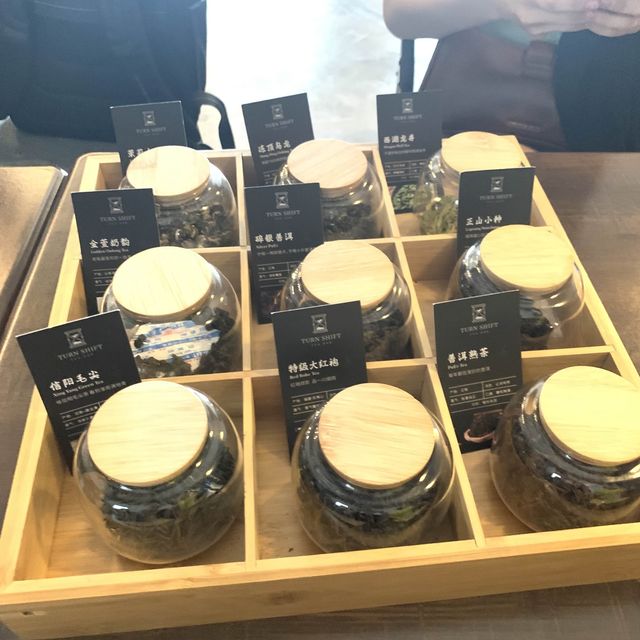
The aroma of the tea leaves drew me in instantly. The vendor, a knowledgeable tea connoisseur, shared insights into the different varieties and their unique flavors. Holding a packet of tea leaves, I felt connected to the ancient traditions of tea culture in Beijing.
📖 About Tea Leaves
Tea leaves are a classic souvenir from Beijing, celebrated for their rich flavors and health benefits. From green tea to oolong, each type offers a distinct taste and experience. Tea is an integral part of Chinese culture, symbolizing hospitality and tranquility.
📍 Where to buy
Maliandao Tea Market or Wuyutai Tea Shop
💰 Cost
Around Rp 100,000–Rp 300,000
📦 Packaging info
Often packaged in decorative tins or boxes, perfect for preserving freshness and gifting.
💡 Pro Tips
Smell the leaves to ensure a fresh, fragrant aroma. Don’t hesitate to ask for a tasting session to find the flavor you love. Bargaining is common, especially if purchasing in bulk!
Top Things To do In Beijing
4. Silk Scarves
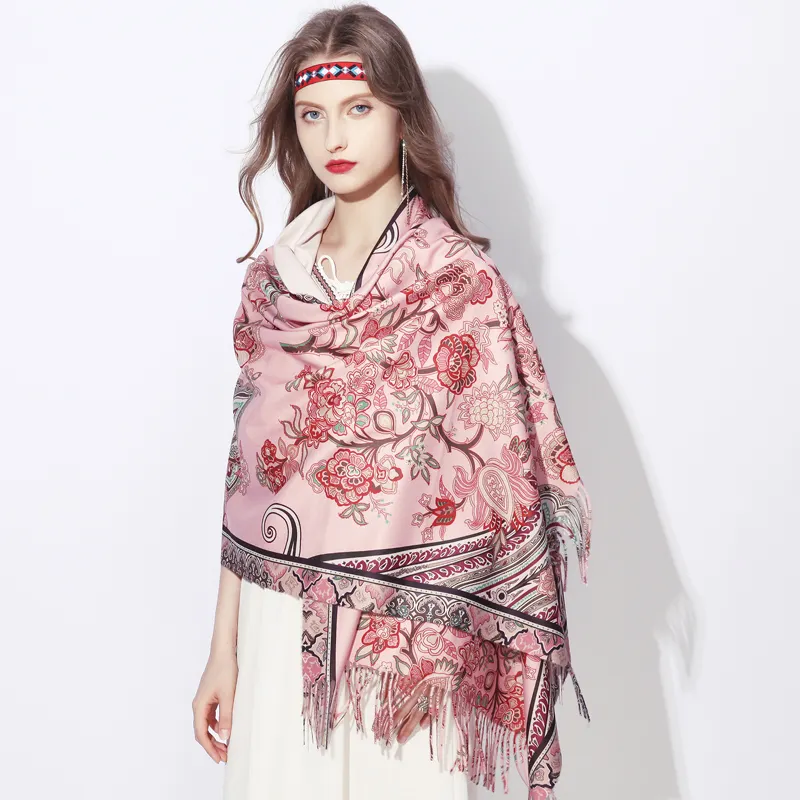
The instant I felt the smoothness of the silk scarf, I knew it was special. The vendor, a kind woman with years of experience, explained how each scarf is crafted with techniques that have been cherished for generations. Holding the scarf, I felt connected to Beijing's rich history and artistry.
📖 About Silk Scarves
Silk scarves from Beijing are a blend of fashion and tradition, often showcasing beautiful patterns and exquisite craftsmanship. Historically worn by the nobility, these scarves represent sophistication and cultural heritage.
📍 Where to buy
Silk Street Market or Beijing Silk Factory
💰 Cost
Around Rp 200,000–Rp 600,000
📦 Packaging info
Usually comes elegantly wrapped in a silk pouch, making it a perfect gift.
💡 Pro Tips
Feel the fabric to ensure it’s genuine silk; it should feel soft and cool. Engage in friendly bargaining to get the best deal, as vendors are typically open to negotiation.
Recommended Hotels in Beijing
5. Traditional Beijing Cloth Shoes
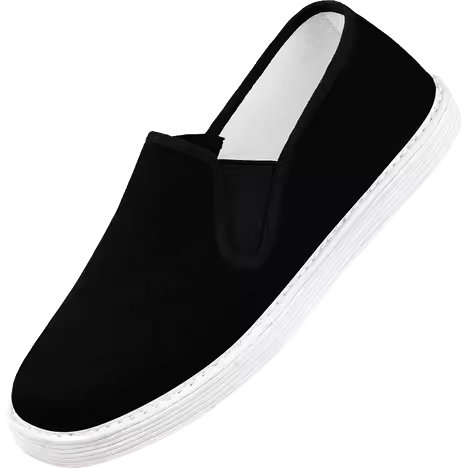
The moment I slipped on the traditional Beijing cloth shoes, I appreciated their comfort and craftsmanship. The vendor, a skilled shoemaker, shared stories of how these shoes have been a staple in Beijing fashion for centuries. Wearing them, I felt a connection to the everyday life and culture of the city.
📖 About Traditional Beijing Cloth Shoes
These cloth shoes are a classic Beijing souvenir, known for their simple yet elegant design. Made from breathable fabric and soft soles, they are perfect for both casual wear and cultural appreciation. Historically favored for their comfort, they symbolize practicality and tradition.
📍 Where to buy
Dashilan or Qianmen Street
💰 Cost
Around Rp 150,000–Rp 400,000
📦 Packaging info
Typically comes in a simple box, often with a cloth bag for easy carrying.
💡 Pro Tips
Check the stitching and fabric quality for durability. Try them on to ensure a comfortable fit, and don’t hesitate to discuss the price, as bargaining is a common practice.
6. Yixing Clay Teapots
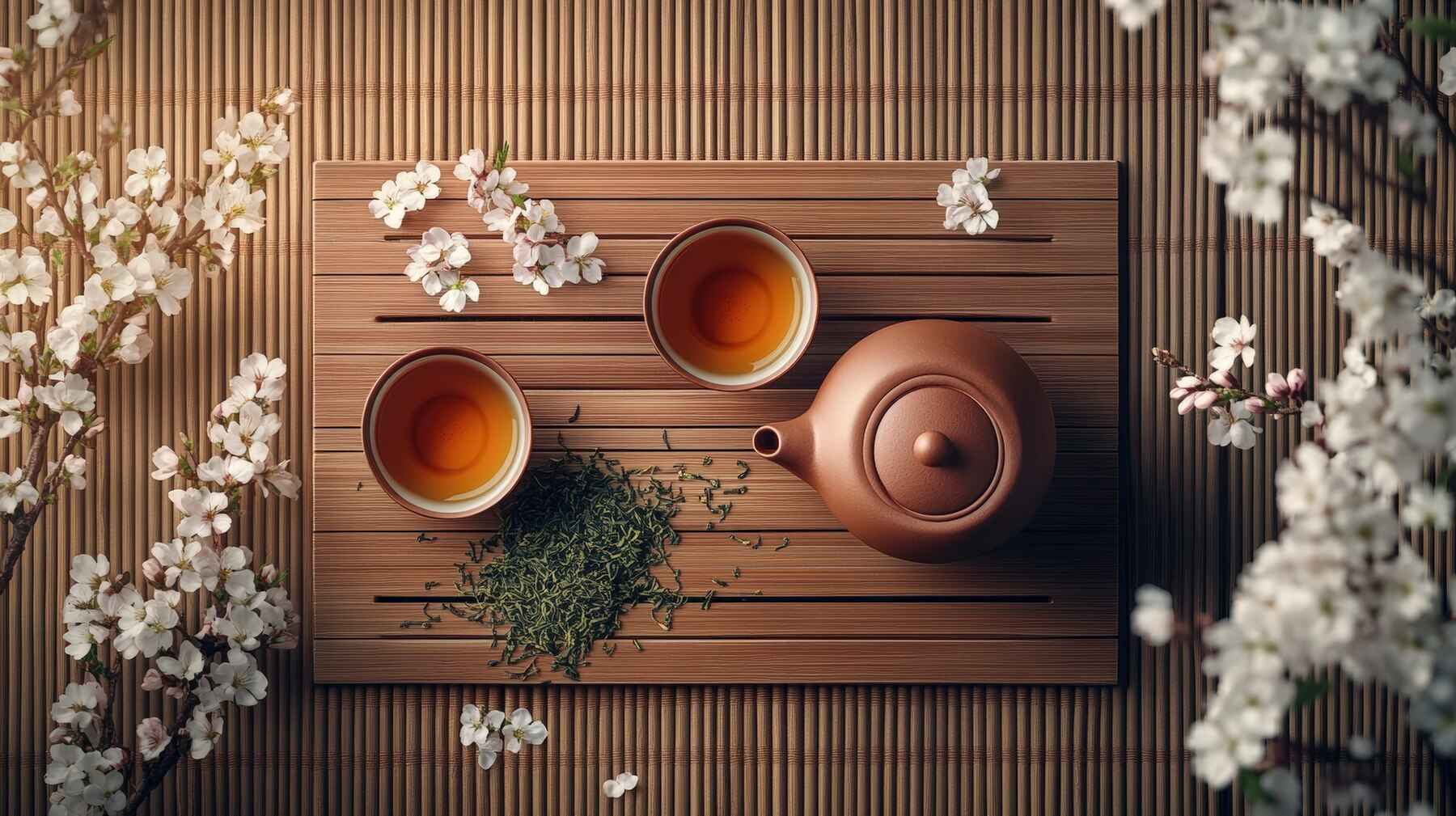
The moment I held the Yixing clay teapot, I was struck by its weight and texture. The vendor, an expert in teapot craftsmanship, explained how each pot is uniquely made to enhance the flavor of tea. Holding the teapot, I felt a deep connection to the art of tea-making in Beijing.
📖 About Yixing Clay Teapots
Yixing clay teapots are renowned for their ability to absorb the flavors of tea, making each brew richer over time. Crafted from special clay, these teapots are both functional and artistic, representing a cherished tradition in Chinese tea culture.
📍 Where to buy
Panjiayuan Antique Market or specialized tea shops
💰 Cost
Around Rp 300,000–Rp 1,000,000
📦 Packaging info
Often comes in a sturdy box with protective padding, ideal for gifting or safe transport.
💡 Pro Tips
- Examine the teapot for a smooth finish and tight-fitting lid.
- Inquire about the clay type and craftsmanship to ensure authenticity.
- Consider starting with a smaller pot if you’re new to using Yixing teapots, as they require specific care and use.
7. Chinese Traditional Bamboo Flute
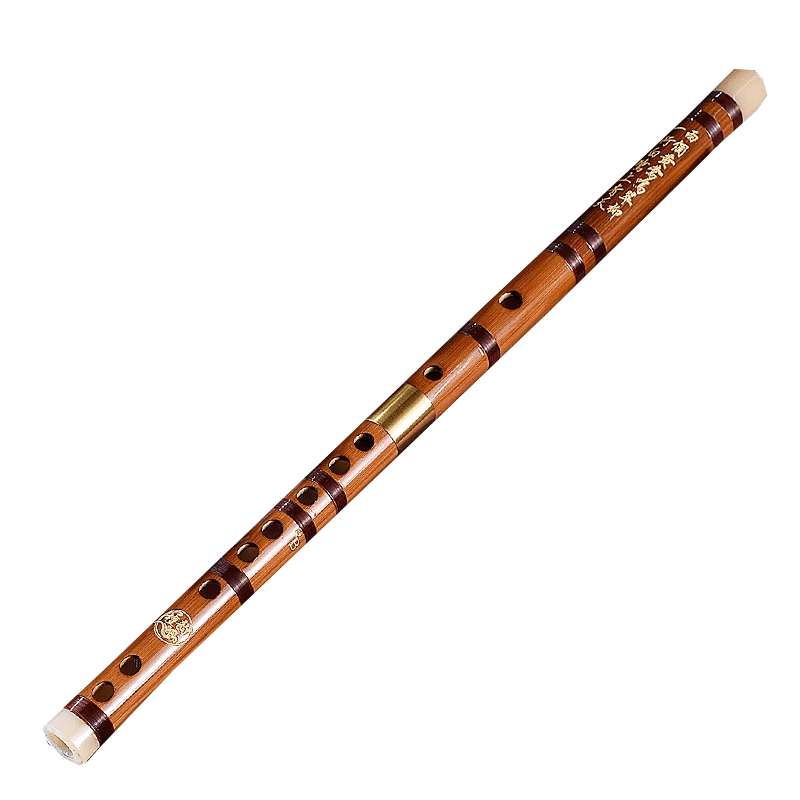
The first time I played a note on the Chinese traditional bamboo flute, its melodious sound resonated with me. The vendor, a passionate musician, shared insights into the flute's role in traditional Chinese music. Holding the flute, I felt a deep connection to the musical heritage of Beijing.
📖 About Chinese Traditional Bamboo Flute
The bamboo flute, or "dizi," is a staple in Chinese music, known for its bright and expressive tones. Often used in folk music and classical compositions, it embodies the spirit and emotion of Chinese culture.
📍 Where to buy
Xinjiekou or music shops near conservatories
💰 Cost
Around Rp 100,000–Rp 500,000
📦 Packaging info
Typically comes with a protective case or pouch to prevent damage.
💡 Pro Tips
- Inspect the flute for smooth holes and a straight body to ensure quality sound.
- Ask the vendor to demonstrate its sound to appreciate its tonal quality.
- If you're a beginner, consider purchasing a flute with a fingering chart or instructional guide.
8. Five-Kernel Mooncakes
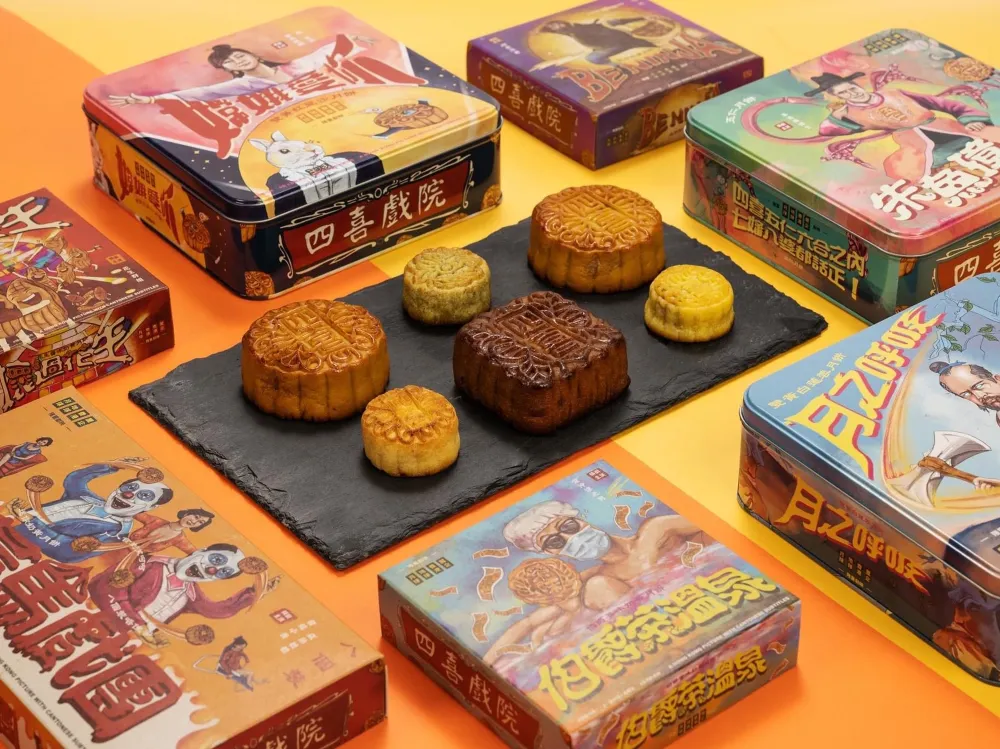
The rich aroma of the five-kernel mooncake was irresistible. The vendor, a seasoned baker, explained the significance of this traditional treat during the Mid-Autumn Festival. Tasting the mooncake, I felt connected to the festive spirit and culinary traditions of Beijing.
📖 About Five-Kernel Mooncakes
Five-kernel mooncakes are a traditional Chinese pastry filled with a mixture of five types of nuts and seeds, often including walnuts, almonds, sesame seeds, melon seeds, and peanuts. They symbolize unity and prosperity, making them a popular choice during celebrations.
📍 Where to buy
Daoxiangcun or local bakeries during the Mid-Autumn Festival
💰 Cost
Around Rp 50,000–Rp 150,000 per piece
📦 Packaging info
Usually packaged in decorative boxes, ideal for gifting during the festival season.
💡 Pro Tips
- Check the ingredient list to ensure a variety of nuts and seeds for authentic flavor.
- Purchase from reputable bakeries to enjoy fresh and high-quality mooncakes.
- If possible, try a sample to appreciate the texture and taste before buying.
Top Things To do In Beijing
9. Walnut Cookies

The delightful crunch of the walnut cookie was both satisfying and memorable. The vendor, with a warm smile, shared the recipe passed down through generations. Tasting the cookie, I felt a connection to Beijing's rich culinary traditions and the simple joys of its snacks.
📖 About Walnut Cookies
Walnut cookies are a popular traditional snack in Beijing, known for their crumbly texture and rich nutty flavor. Made with finely chopped walnuts, these cookies offer a perfect balance of sweetness and nuttiness, making them a beloved treat for locals and visitors alike.
📍 Where to buy
Local bakeries or traditional snack shops
💰 Cost
Around Rp 30,000–Rp 80,000 per pack
📦 Packaging info
Often comes in simple yet charming boxes or bags, suitable for sharing or as a gift.
💡 Pro Tips
- Look for cookies with a golden-brown color and visible walnut pieces for the best flavor. Enjoy them with a cup of tea for a delightful snack experience.
- If you’re buying in bulk, check for freshness and ask about the shelf life to ensure quality.
10. Beijing Eight Delicacies
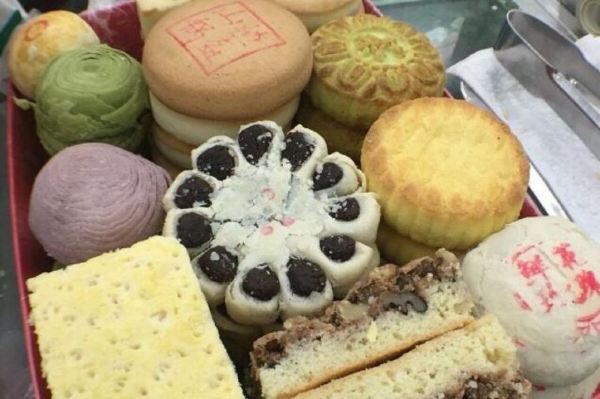
The assortment of the Beijing Eight Delicacies offered a delightful journey through flavors and textures. The vendor, knowledgeable in Beijing's culinary arts, explained the significance of each pastry in this traditional set. Sampling these treats, I felt a deep connection to the rich heritage and festive spirit of Beijing.
📖 About Beijing Eight Delicacies
The Beijing Eight Delicacies, or "Jing Ba Jian," is a traditional assortment of pastries that showcases the diversity of Beijing's dessert culture. Each piece in the set has its unique flavor and texture, often including ingredients like red bean paste, lotus seeds, jujube, and walnuts, representing prosperity and good fortune.
📍 Where to buy
Traditional pastry shops or specialty stores in Beijing
💰 Cost
Around Rp 100,000–Rp 300,000 per box
📦 Packaging info
Typically presented in an elegant box, making it a perfect gift for special occasions or as a souvenir.
💡 Pro Tips
- Look for freshly made assortments to enjoy the best flavors and textures.
- Ask the vendor about the ingredients if you have dietary preferences or allergies.
- Enjoy the pastries with tea or share them with friends and family to experience the traditional way of savoring these delicacies.
11. Mahua (Twisted Fried Dough)

The crispy texture and subtle sweetness of mahua made it an irresistible snack. The vendor, with a twinkle in his eye, shared stories of how this threat has been a staple in Beijing for generations. Enjoying mahua, I felt connected to the everyday joys and culinary simplicity of Beijing life.
📖 About Mahua
Mahua is a traditional Chinese snack made from twisted strands of dough that are fried until golden brown. Known for its crunchy texture and slightly sweet flavor, mahua is a popular treat enjoyed by people of all ages, often found in markets and street stalls across Beijing.
📍 Where to buy
Local markets or street vendors in Beijing
💰 Cost
Around Rp 20,000–Rp 50,000 per pack
📦 Packaging info
Usually sold in simple bags or boxes, making it easy to carry as a snack on the go.
💡 Pro Tips
- Look for mahua that is freshly made for the best crunch and flavor.
- Pair it with tea or coffee for a delightful snack experience.
- If you’re buying in bulk, check for any added flavors like sesame or peanuts for a unique twist on the classic treat.
Recommended Hotels in Beijing
🛣️ Top Shopping Streets in Beijing
Wangfujing Street
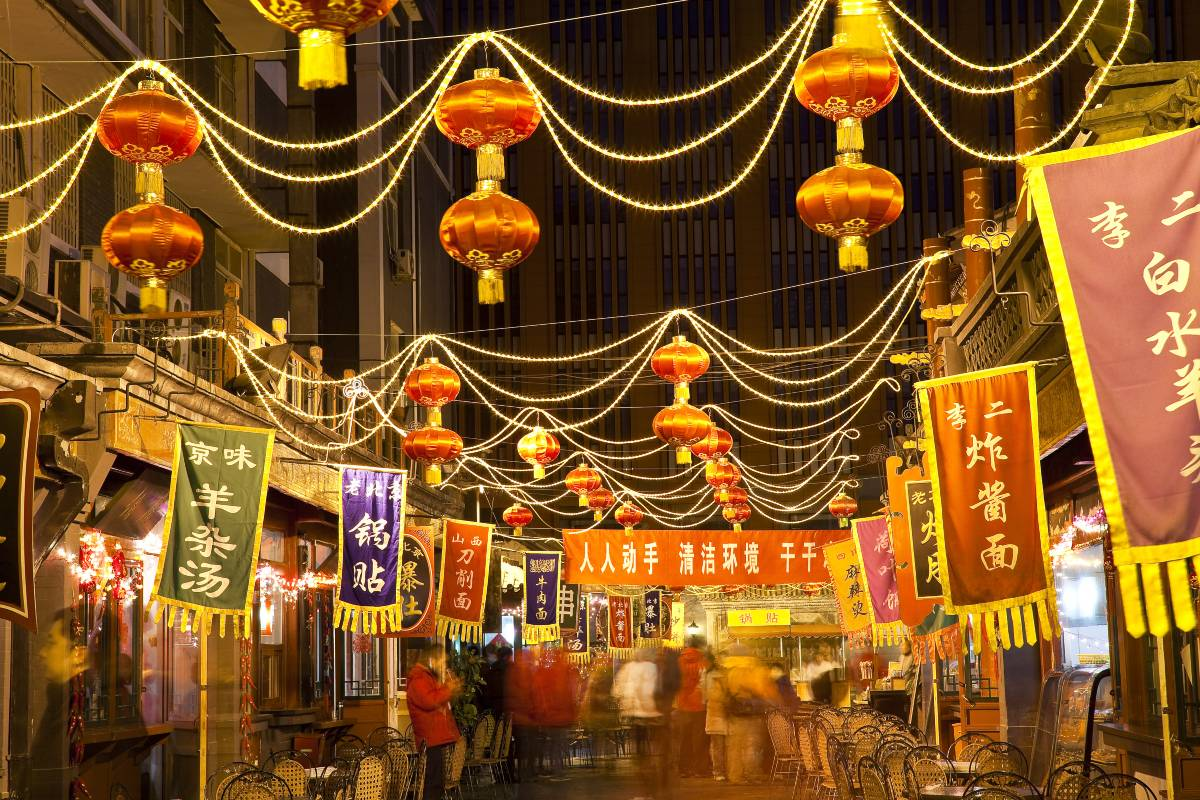
Exploring Wangfujing Street was an exciting adventure. As one of Beijing's most famous shopping destinations, it offered a blend of traditional charm and modern flair. I wandered through a variety of shops, from those selling exquisite Chinese silk and tea to modern retail stores with the latest fashion trends. The street was bustling with energy, and I found myself captivated by the vibrant atmosphere.
- 📍 Location: Situated in the heart of Beijing, close to the Forbidden City.
- 🚇 Nearest metro station: Wangfujing Station (Line 1).
- 💰 Cost: Prices range widely; you can find affordable souvenirs at smaller stalls, while luxury items are available in larger stores. Expect to spend from Rp 50,000 for small trinkets to Rp 1,000,000 or more for high-end goods.
- 💡 Tips: Visit during the late afternoon or evening to enjoy the lively street performances and beautifully lit storefronts. Don’t forget to try some local snacks from the street vendors for a true taste of Beijing.
Nanluoguxiang

Strolling through Nanluoguxiang felt like stepping into a charming blend of history and modernity. This narrow alleyway, lined with traditional courtyard homes, was filled with boutique shops and cozy cafes. I discovered unique handmade crafts, trendy clothing, and quirky souvenirs that made perfect gifts for friends and family.
- 📍 Location: Nestled in the heart of the old city, near the Drum and Bell Towers.
- 🚇 Nearest metro station: Nanluoguxiang Station (Line 6 and Line 8).
- 💰 Cost: Prices vary; small souvenirs can start from Rp 30,000, while more unique items and clothing might range from Rp 200,000 to Rp 500,000.
- 💡 Tips: Visit during weekdays to avoid crowds and take your time exploring each shop. Enjoy a cup of coffee or tea in one of the cafes and soak in the artistic vibe of the area. Don’t forget to bring a camera to capture the picturesque surroundings.
Sanlitun
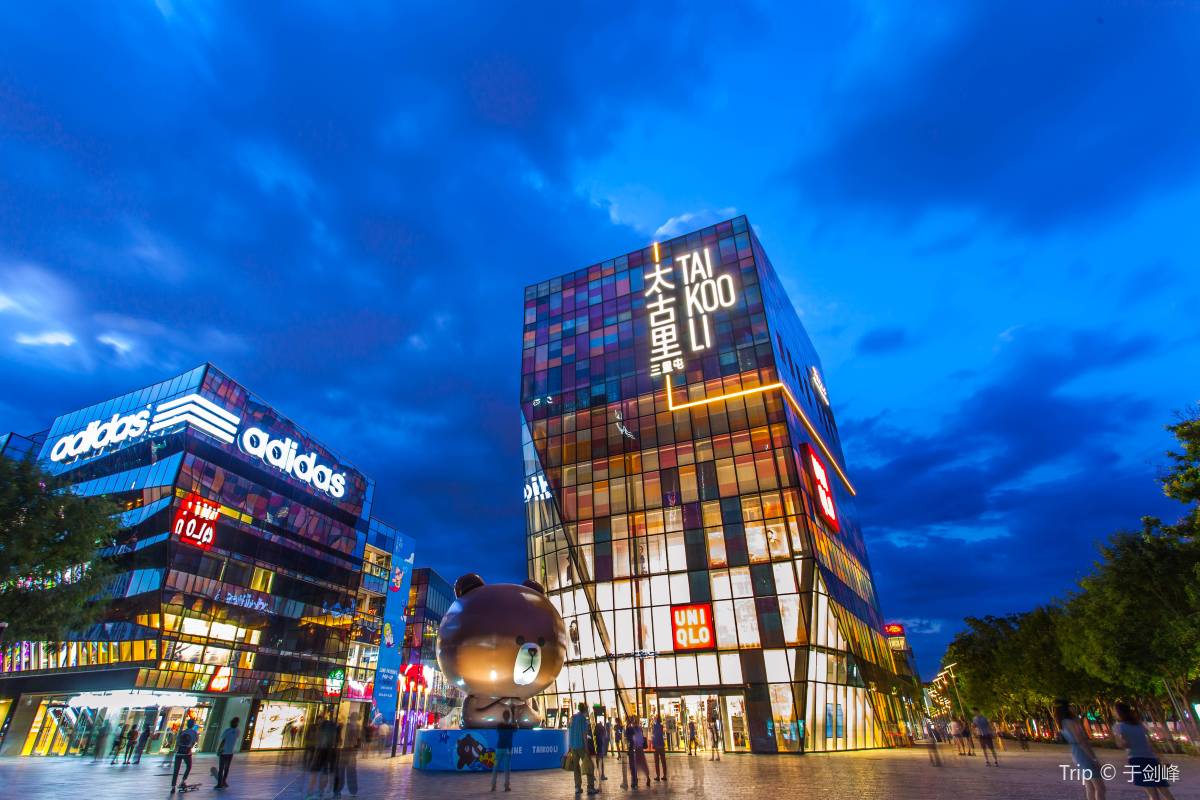
Visiting Sanlitun was an exhilarating experience, where the modern pulse of Beijing truly came alive. Known for its vibrant nightlife and upscale shopping, Sanlitun offered a plethora of high-end fashion stores and trendy boutiques. I was amazed by the sleek architecture and the variety of international brands available.
- 📍 Location: Situated in the Chaoyang District, a bustling area known for its embassies and nightlife.
- 🚇 Nearest metro station: Tuanjiehu Station (Line 10).
- 💰 Cost: Prices are generally higher due to the presence of luxury brands, with items ranging from Rp 500,000 to several million rupiah, depending on the store and product.
- 💡 Tips: The area is best explored in the evening when the nightlife scene comes alive with bars and restaurants. It's a great place to enjoy a night out or simply people-watch while sipping a drink at one of the outdoor terraces. Be prepared for a lively and cosmopolitan atmosphere.
🏬 Premier Shopping Malls in Beijing
China World Mall
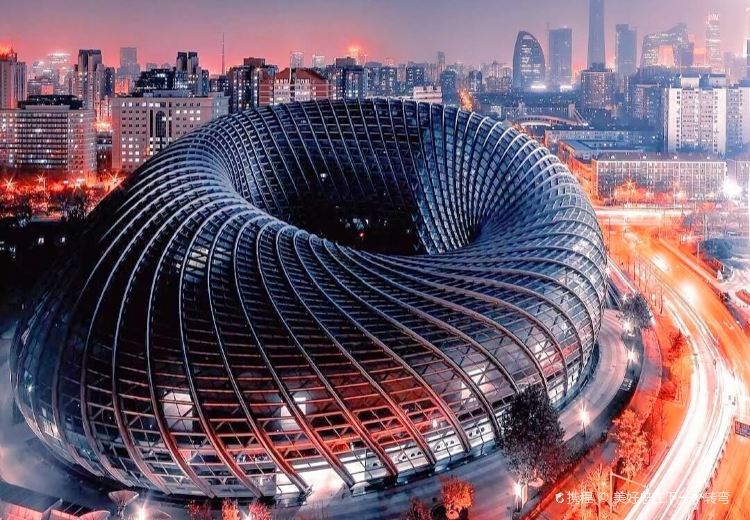
Visiting China World Mall in Beijing was an unforgettable experience. As I walked through its elegant corridors, I was surrounded by a blend of luxury and sophistication. This mall is a haven for high-end shopping, with a wide array of international designer brands and exquisite boutiques. From fashion to fine jewelry, the selection is impressive and caters to those with a taste for the finer things in life.
- 📍 Location: Situated in the bustling Central Business District at 1 Jianguomen Outer Street.
- 🚇 Nearest metro station: Guomao Station (Line 1 and Line 10).
- 💰 Cost: Prices here reflect the luxury offerings, with fashion items starting around Rp 1,000,000 and designer pieces reaching into the millions.
- 💡 Tips: Take your time to explore the various sections of the mall, and don't miss the gourmet food court for a delightful dining experience. If you're looking for something special, check out the limited-edition collections and exclusive brand collaborations.
Taikoo Li Sanlitun
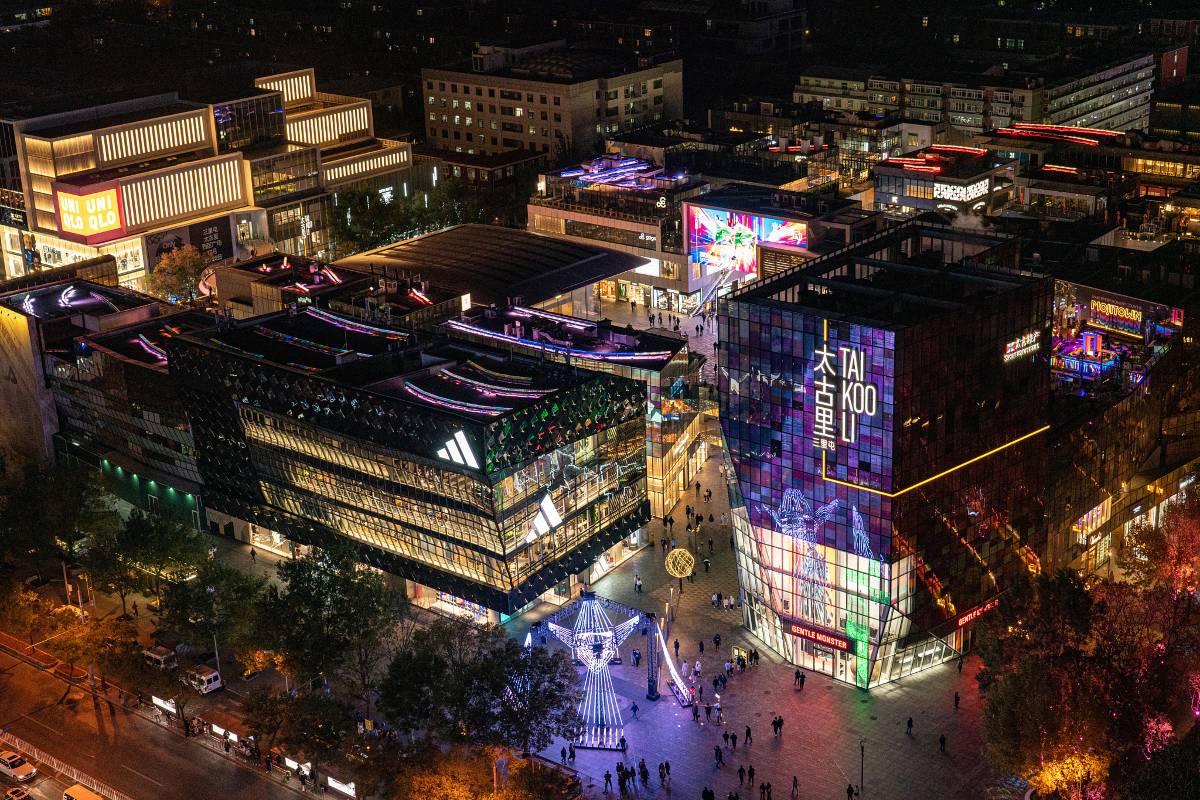
Exploring Taikoo Li Sanlitun was a dynamic and vibrant experience. This open-air shopping district is a hotspot for fashion enthusiasts and trendsetters. The area is divided into two sections, the South and North areas, each offering a unique mix of international and local brands. The modern architecture and lively atmosphere make it a perfect place to spend an afternoon or evening.
- 📍 Location: Located in the heart of Sanlitun, Chaoyang District.
- 🚇 Nearest metro station: Tuanjiehu Station (Line 10).
- 💰 Cost: Prices vary widely, with trendy fashion items starting around Rp 500,000, while luxury brands can go much higher.
- 💡 Tips: Visit in the evening to enjoy the bustling nightlife, with plenty of bars and restaurants offering a variety of cuisines. Keep an eye out for seasonal events and pop-up stores that often feature unique and limited-time offerings.
Joy City Chaoyang
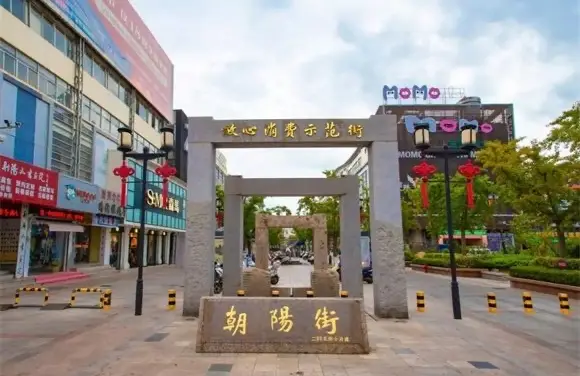
Visiting Joy City Chaoyang was a delightful experience filled with diverse shopping and entertainment options. This modern mall caters to a wide audience, offering everything from popular fashion brands to unique lifestyle stores. The spacious layout and contemporary design make it a comfortable place to explore.
- 📍 Location: Situated in the vibrant Chaoyang District at 101 Chaoyang North Road.
- 🚇 Nearest metro station: Chaoyangmen Station (Line 6).
- 💰 Cost: You'll find a range of prices here, with casual fashion starting around Rp 300,000, while more upscale items can be considerably higher.
- 💡 Tips: Make sure to check out the entertainment floor, which includes a cinema and arcade. The food court offers a variety of international and local cuisines, perfect for taking a break during your shopping spree. Keep an eye out for special promotions and seasonal sales for great deals.
Top Things To do In Beijing
💡 Tips for Shopping in Beijing
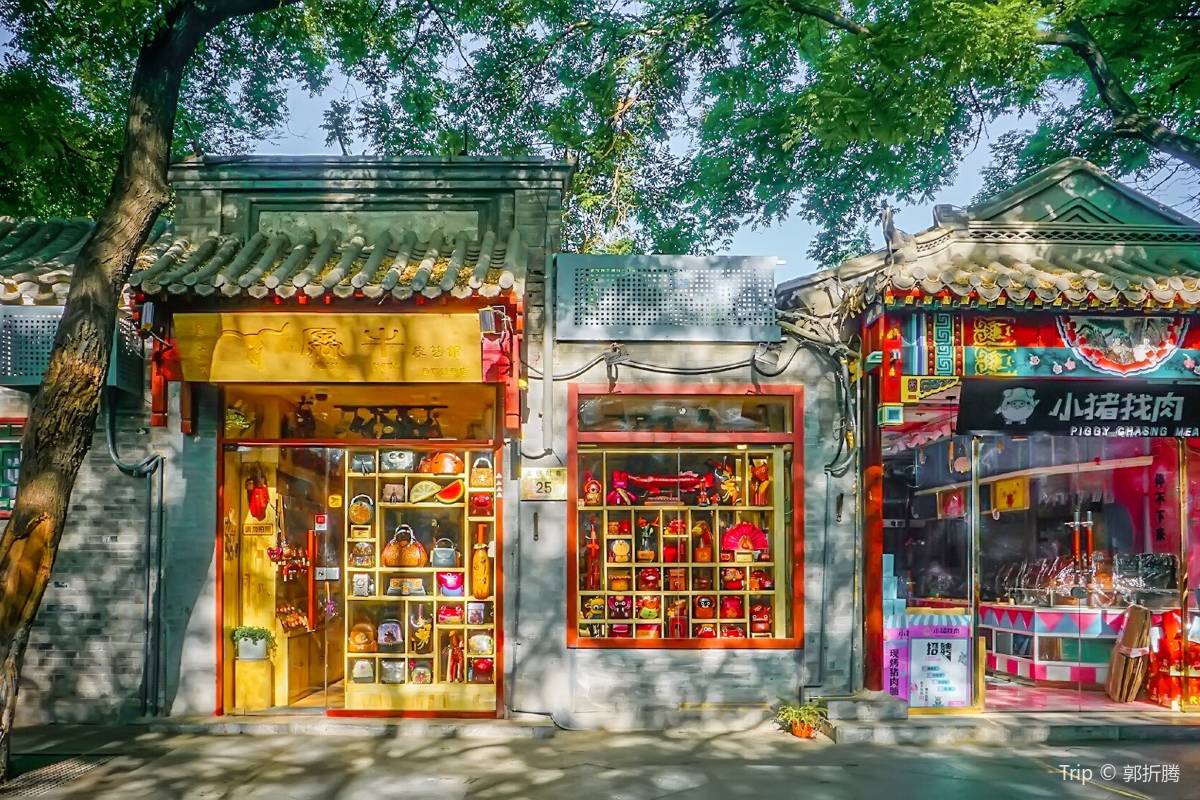
Shopping in Beijing was an exciting adventure, and I picked up a few tips to make the most of the experience:
Bargaining in Markets:
In places like the Silk Market or Panjiayuan Antique Market, bargaining is expected. I found it helpful to start my offers at about 50% of the asking price and negotiate from there. It's important to keep the exchange friendly and polite.
Mobile Payments:
While many stores accept credit cards, I noticed that smaller shops and stalls often prefer WeChat Pay or Alipay. Having these apps ready made transactions much smoother.
Tourist Tax Refund:
As a visitor, I was eligible for tax refunds on specific purchases. I made sure to request a tax refund form at participating stores and processed it at the airport before departing.
Customs Considerations:
When buying items like silk, tea, or antiques, I checked my home country's customs rules to ensure I could bring these items back without issues.
🚶♀️ Embark on Your Shopping Journey in Beijing
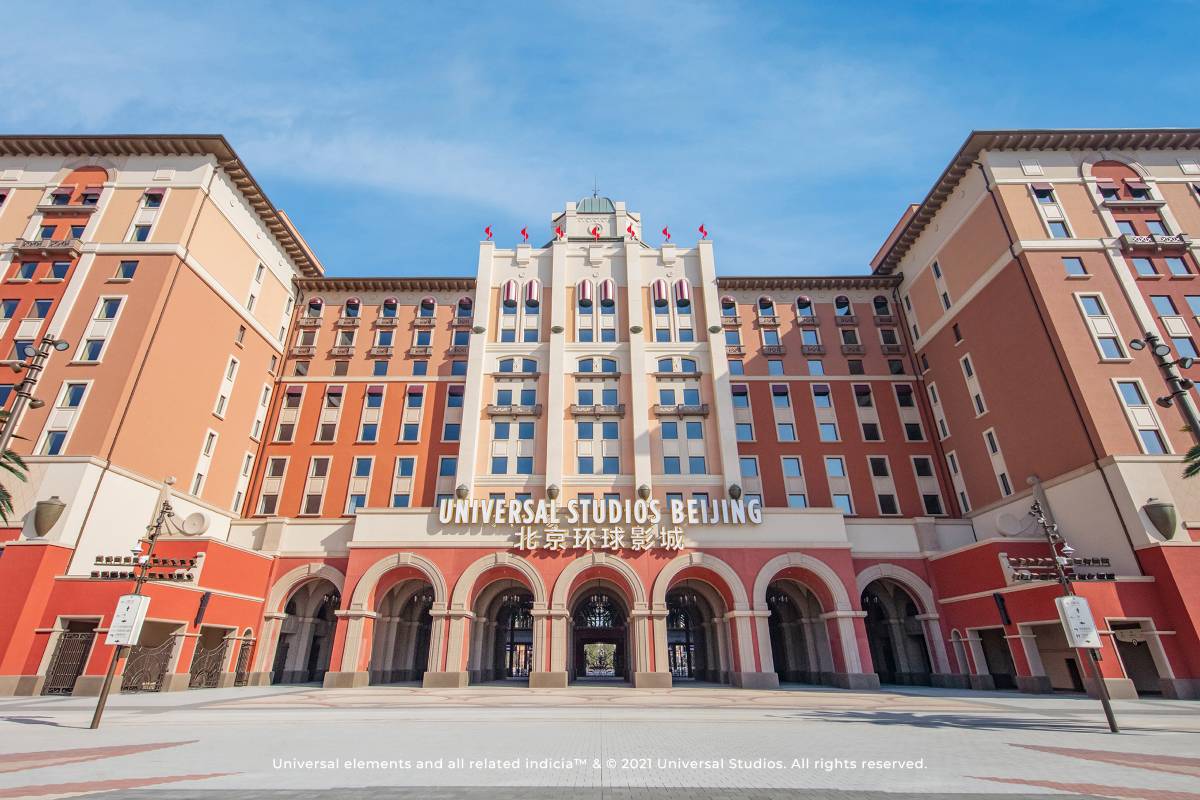
Exploring what to buy in Beijing felt like uncovering a treasure trove of culture and tradition. The city offers an array of unique items that capture its rich heritage and vibrant spirit.
When I was there, I found that Peking opera masks and traditional Chinese calligraphy make for wonderful souvenirs. These items are not only beautiful but also tell a story of Beijing's artistic history. Tea is another must-buy; the variety and quality available in Beijing are exceptional, making it a perfect gift for friends back home.
Silk products, like scarves and clothing, are also popular and showcase the elegance of Chinese craftsmanship. Additionally, I couldn't resist picking up some intricate cloisonné enamel pieces, which are both colorful and exquisite.
If you're planning a trip, now is a great time to explore Beijing's markets and shops, with many offering special deals and promotions. Enjoy your shopping adventure, and I look forward to hearing about the treasures you discover!
(FAQ) about what to buy in Beijing
What are the best souvenirs to buy in Beijing? 🛍️
Some popular souvenirs include Peking opera masks 🎭, traditional Chinese calligraphy 🖌️, silk products 🧣, cloisonné enamel items 🎨, and Chinese tea 🍵.Where can I buy authentic Chinese tea in Beijing? 🍃
You can find a wide variety of authentic Chinese teas at markets like Maliandao Tea Market or specialized tea shops throughout the city.Are there any traditional crafts unique to Beijing? 🧧
Yes, Beijing is known for its intricate cloisonné enamel art, as well as paper cutting ✂️ and jade carvings 🗿, which make for unique and meaningful gifts.Is bargaining acceptable when shopping in Beijing? 🤝
Bargaining is common in markets such as the Silk Market and Panjiayuan Antique Market. It's a good idea to start negotiating at about 50% of the initial price.Can I use credit cards for shopping in Beijing? 💳
While many larger stores accept credit cards, smaller shops and market stalls often prefer mobile payments like WeChat Pay or Alipay 📱.What should I consider when buying antiques in Beijing? 🏺
Ensure that the antiques are authentic and check for any export restrictions. It's wise to buy from reputable dealers and request documentation if needed.Are there any restrictions on exporting items from Beijing? 🚫
Yes, certain items like antiques and cultural relics may have export restrictions. It's important to check local regulations and your home country's import rules.



 170 booked
170 booked